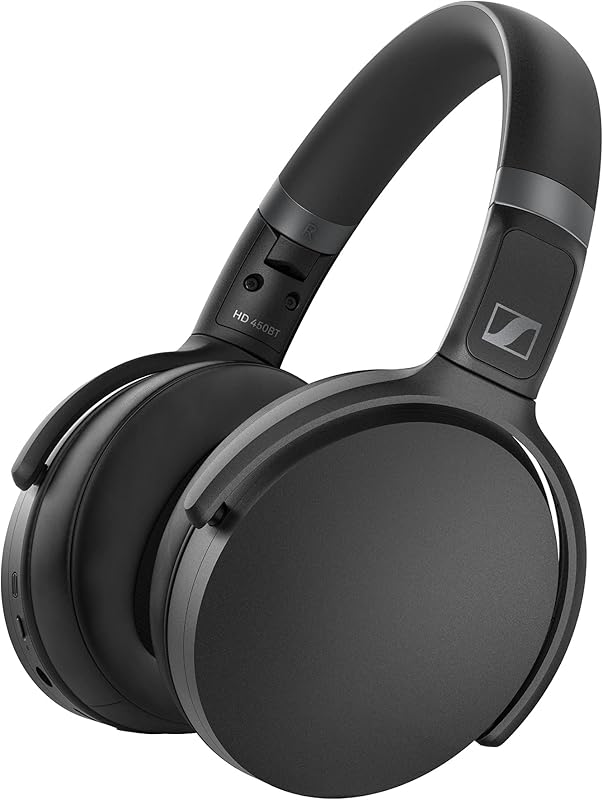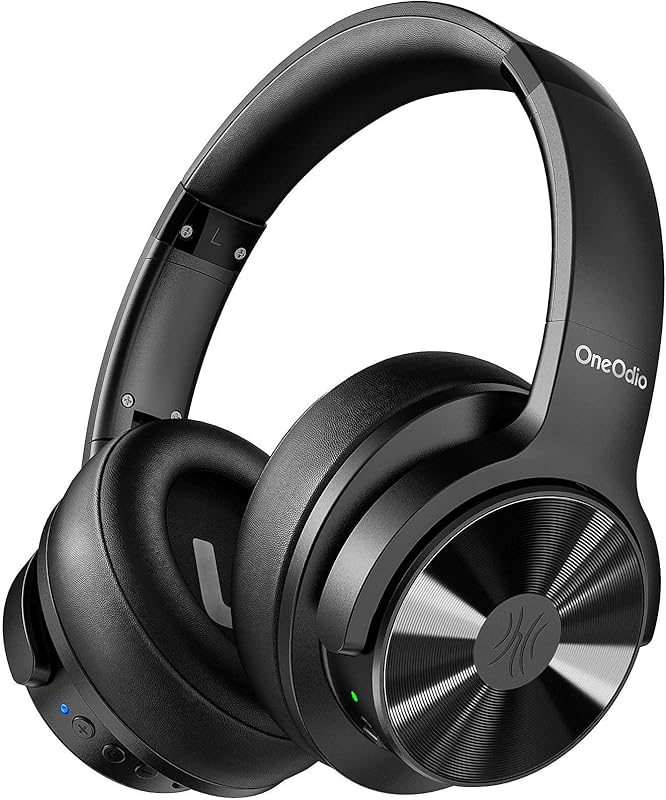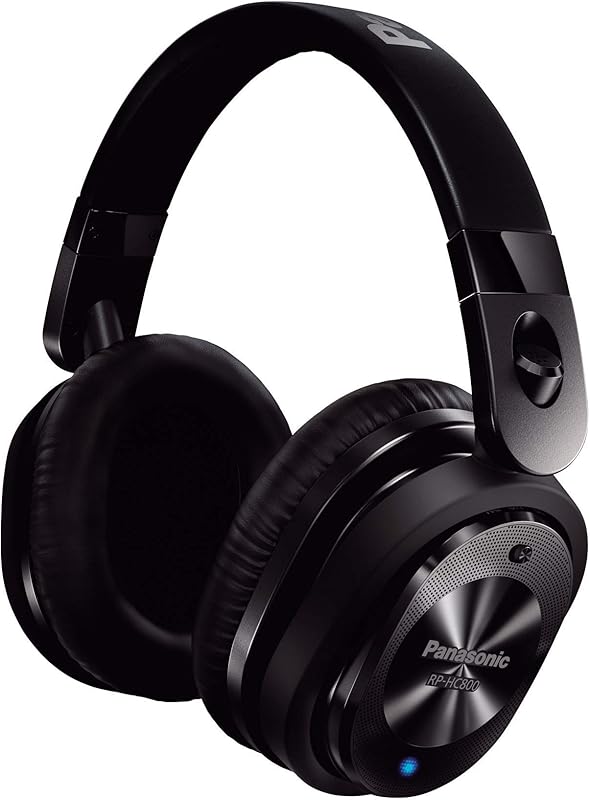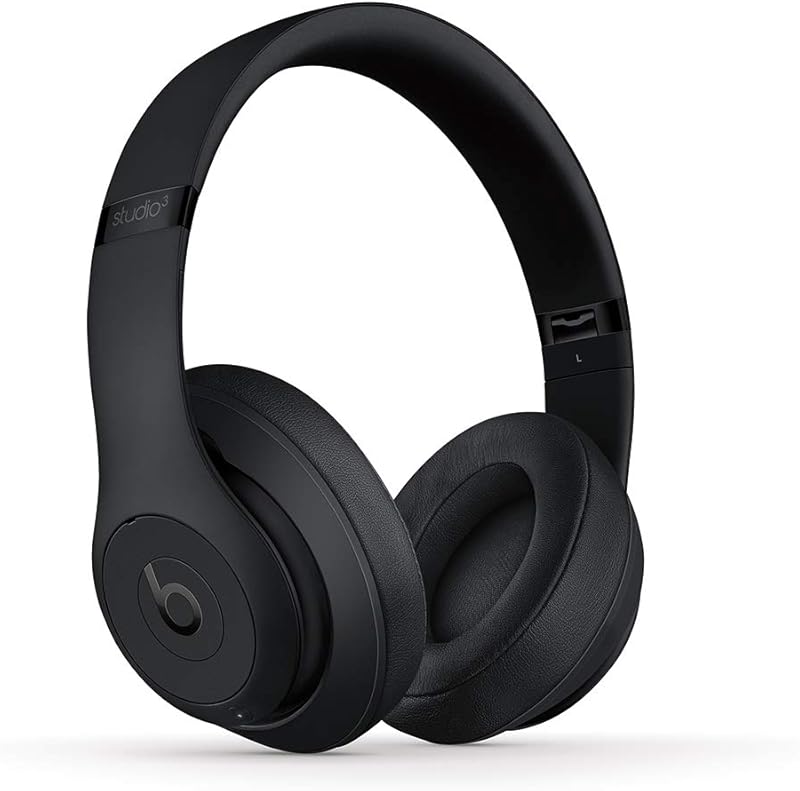Are You Suffering from tinnitus? And finding the best Headphones for yourself. So you Land at the right Place.
Tinnitus is a condition where you experience ringing or other noises in one or both of your ears. It can take several problems in your life such as stress, anxiety, depression, headaches, trouble concentrating, and much more.
For people suffering from tinnitus, using noise-cancelling headphones are the best option. It is important to choose a good pair of ANC headphones if you have tinnitus. Loud sounds can damage your inner ear’s hair cells, which can also affect your hearing.
There are many noise-canceling headphones available for users with tinnitus, and choosing the right one can make all the difference in your listening experience. With Solving Your Problem I bring in this article the Best Over-Ear Headphones for Tinnitus sufferers.
Top Noise-Cancelling Over-Ear Headphones for Tinnitus Sufferers
Also: Do Over-Ear Headphones Look Stupid? | Can you get ear pain from Headphones?
Best Budget Over-Ear Headphones for Tinnitus
 Bose | Bose QuietComfort 35 II
Pros
Check Price
|
The Bose QuietComfort 35 II are over-ear wireless headphones that feature acclaimed active noise canceling technology, a dual-microphone system, and a comfortable design. They weigh 10.9 oz and have a battery life of up to 20 hours on a single charge.
The headphones use Bluetooth technology for wireless sound, and offer world-class noise cancellation with Bose-optimized audio. The noise cancellation is fine-tuned for audio listening in quieter or windy environments, making them a great choice for travel.
The headphones also have a dedicated button for Google Assistant, which can be programmed for other functions. The Bose QuietComfort 35 II has an extra-comfortable design with soft ear cushions and a headband, which make them ideal for extended use.
They come in multiple colors and are a popular choice for audiophiles and frequent travelers.
BIndustry Leading Noise-Canceling Headphones with Premium Sound
 sony | Sony WH-1000XM4
Pros
Check Price
|
The Sony WH-1000XM4 headphones are another top pick for noise cancellation. WH-1000XM4 is a premium over-ear wireless headphone with advanced noise cancellation features, two microphones on each earcup, and wide frequency response.
It uses Bluetooth 5.0 technology and supports multiple audio codecs including SBC, AAC, and LDAC. The headphones offer improved voice calling and the ability to connect to two devices simultaneously.
With up to 30 hours of battery life, they are suitable for long listening sessions. The Sony WH-1000XM4 also has voice control support, allowing users to access virtual assistants like Amazon Alexa or Google Assistant. The headphones have a sleek, modern design and come in multiple colors.
Best Tinnitus Friendly Headphones
 Sennheiser | Sennheiser Momentum 3 Wireless
Pros
Check Price
|
The Sennheiser Momentum 3 Wireless are over-ear wireless headphones that offer active noise cancellation and a unique Transparent Hearing feature that allows users to hear their surroundings without removing the headphones.
They have built-in microphones for hands-free phone calls, and an intuitive 3-button interface for controlling playback and managing calls. The headphones use Bluetooth 5.0 with support for SBC, aptX LL, aptX, and AAC codecs, ensuring compatibility with a wide range of devices.
The Sennheiser Momentum 3 Wireless is known for its excellent sound quality and build quality, with premium materials used throughout. They also have a multi-connect feature that enables users to connect to two devices simultaneously.
The headphones have a sleek, modern design and come in multiple colors.
Best Noise Cancelling Headphones for Tinnitus
 Jabra | Jabra Elite 85h
Pros
Check Price
|
Jabra Elite 85h will be a great option for tinnitus Sufferers. Jabra Elite 85h are over-ear wireless headphones that feature active noise cancellation, voice assistant integration, and long battery life.
The headphones feature Smart Sound technology that can automatically adjust the noise cancellation based on your surroundings and offer a range of customizable EQ settings through the Jabra Sound+ app.
They also have an impressive battery life of up to 36 hours with noise cancellation enabled, and come with a carrying case for portability. The sound quality is generally considered to be well-balanced and detailed, making them a great choice for all genres of music.
Best Wireless for Tinnitus
 Soundcore | Soundcore by Anker Life Q35
Pros
Check Price
|
The Soundcore by Anker Life Q35 headphones is a highly rated, affordable option for noise-canceling. They use hybrid active noise-cancellation technology to block out ambient noise and have a comfortable over-ear design with memory foam ear cushions.
The headphones feature custom 40mm drivers that deliver Hi-Res Audio and have a long battery life of up to 40 hours with noise-cancellation turned on. The headphones also come with a built-in microphone and remote for taking calls and controlling music playback.
Additionally, the Soundcore app allows for further customization of the headphones’ settings.
Best Over ear Headphones For Tinnitus
 Sennheiser | Sennheiser HD 450BT
Pros
Check Price
|
The Sennheiser HD 450BT headphones are a high-quality, affordable option for noise-cancelling. They feature advanced active noise-cancellation technology to block out ambient noise and have a comfortable over-ear design with soft ear pads.
The headphones have custom 40mm drivers that deliver high-quality sound and can be controlled using touch controls on the ear cups. They have a long battery life of up to 30 hours with noise-cancellation turned on, and up to 35 hours with noise-cancellation turned off.
Additionally, the headphones come with a built-in microphone and remote for taking calls and controlling music playback. They can be used with a smartphone app for further customization and control.
Best Low range Headphones for Tinnitus
 OneOdio | OneOdio A30
Pros
Check Price
|
The OneOdio A30 headphones are an affordable noise-cancelling option with a comfortable over-ear design. They use advanced active noise-cancellation technology to block out ambient noise and feature custom 40mm drivers that deliver clear, detailed sound.
The headphones have a long battery life of up to 35 hours with noise-cancellation turned on, and can be used wired or wirelessly. The headphones also come with a built-in microphone and remote for taking calls and controlling music playback and have a foldable design for easy storage and transport.
Best High Quality Sound headphones for Tinnitus
 Panasonic | Panasonic RP-HC800
Pros
Check Price
|
The Panasonic RP-HC800 is a set of over-ear noise-canceling headphones designed to provide a high-quality audio experience while minimizing ambient noise. The headphones use active noise-cancellation technology to block out external sounds.
The headphones also feature large 40mm drivers that deliver clear, powerful sound with a wide frequency response range. The RP-HC800 headphones have a comfortable, padded headband and ear cups, and can be worn for long periods without causing discomfort.
They also have a long battery life, with up to 40 hours of use on a single charge.
Best headphones You can Wear With Tinnitus
 Audio Technica | Audio Technica ATH-M50x
Pros
Check Price
|
The Audio Technica ATH-M50x is a set of professional-grade over-ear headphones designed for studio and critical listening applications. The headphones feature large 45mm drivers with neodymium magnets that deliver high-quality audio with a wide frequency response range.
They have a closed-back design that helps to isolate sound, making them well-suited for use in noisy environments or for monitoring recordings. The ear cups swivel and rotate for easy one-ear monitoring, and the headphones can be folded up for easy storage and transportation.
The ATH-M50x headphones are also popular with audiophiles and music enthusiasts who appreciate their high-quality sound reproduction and durable construction.
Best Noise Cancelling for Tinnitus
 Beats | Beats Studio3
Pros
Check Price
|
The Beats Studio3 Wireless over-ear headphones boast Active Noise Cancelling (ANC) technology, which effectively reduces external noise. Additionally, the headphones feature advanced venting and ergonomic pivoting, which provides a comfortable and flexible fit to the user. With up to 40 hours of battery life, the Beats Studio3 headphones offer a prolonged listening experience, making them ideal for long travels or workdays.
Furthermore, the headphones provide up to 22 hours of playback time from just 90 minutes of charging, making them a convenient choice for users who are always on the go. Users can also turn off the Pure ANC feature to enjoy a longer battery life of up to 40 hours.
What Are The Different Types Of Noise-Cancelling Headphones?
There are two main types of noise-cancelling headphones: passive and active.
1. What Are Passive Noise-Cancelling Headphones?
These headphones work by physically blocking out external noise. They are designed to fit snugly over or in the ear, which helps to reduce the amount of sound that enters the ear canal. The best passive noise-cancelling headphones are made with high-quality materials that can block out more sound. However, they may not be as effective as active noise-cancelling headphones.
2. What Are Active Noise-Cancelling Headphones?
These headphones use technology to actively cancel out external noise. They have built-in microphones that detect external sounds and then produce a sound wave that is the exact opposite of the external noise, effectively canceling it out. Active noise-cancelling headphones are often more effective than passive headphones, but they tend to be more expensive.
In addition to these two main types, different types of headphones combine noise cancellation with other features, such as:
1. Wireless Noise-Cancelling Headphones?
These headphones use Bluetooth technology to connect wirelessly to a device like a phone or a computer. This makes them more convenient to use because there are no cords to get tangled up.
2. In-Ear Noise-Cancelling Earbuds:
These earbuds fit directly into the ear canal and provide noise cancellation in a smaller, more portable form factor.
3. Over-Ear Noise-Cancelling Headphones:
These headphones are larger and cover the entire ear, providing more effective noise cancellation than in-ear or on-ear headphones.
4. Adaptive Noise Cancelling Headphones:
These headphones automatically adjust the level of noise cancellation based on the environment, providing the right amount of noise cancellation for the situation.
Can Noise-Cancelling Headphones Cause Tinnitus?
Noise-cancelling headphones work by using a microphone to detect external sounds and then generating a sound wave that is 180 degrees out of phase with the external sound, effectively canceling it out. While there is no direct evidence that noise-cancelling headphones can cause tinnitus, there are a few factors to consider.
Tinnitus is a condition characterized by ringing or buzzing in the ears that are not caused by an external sound. It can be caused by several factors, including exposure to loud noise. If noise-canceling headphones are used at excessively high volumes for extended periods, they could potentially contribute to tinnitus or exacerbate existing tinnitus.
Furthermore, some people may experience tinnitus-like symptoms when wearing noise-cancelling headphones. This is because noise-cancelling technology can create a sense of pressure or fullness in the ears, which some people may perceive as a ringing or buzzing sound. However, this is not the same as true tinnitus, which is a persistent and often debilitating condition.
Overall, the use of noise-canceling headphones is unlikely to cause tinnitus in and of itself, but it is important to use them responsibly and at safe volumes to minimize any potential risk. If you experience persistent ringing or buzzing in your ears, it is important to consult with a healthcare professional for a proper diagnosis and treatment.
What Is The Best Volume To Listen To Headphones?
The best volume to listen to headphones is a volume that is comfortable and safe for your ears. Listening to music or other audio at excessively high volumes, particularly for extended periods, can lead to damage to your hearing and potentially contribute to tinnitus.
A good rule of thumb is to follow the 60/60 rule: listen to music at no more than 60% of the maximum volume for no more than 60 minutes at a time. If you need to listen for longer periods, take regular breaks to give your ears a rest.
It is also important to pay attention to warning signs in your body. If you find yourself frequently turning up the volume to hear clearly or experiencing ringing or buzzing in your ears, it may be a sign that you are listening at too high of a volume. In such cases, turn down the volume or take a break to give your ears a rest.
In general, it is better to err on the side of caution and listen to music at a lower volume rather than a higher one. By being mindful of the volume level and taking care of your ears, you can enjoy your music while minimizing the risk of hearing damage and tinnitus.
How Can Noise-Cancelling Headphones Help Tinnitus?
Can noise-canceling headphones help tinnitus? Although there is no cure for tinnitus, there are ways to manage it, and active noise canceling (ANC) headphones can be one such option.
ANC headphones work by using microphones to pick up external sounds and then creating sound waves that cancel out those external sounds. This results in a reduction in ambient noise, which can help to mask or reduce the perception of tinnitus.
When using ANC headphones, the reduction in external noise can make it easier for someone with tinnitus to hear other sounds, such as music or speech, without having to turn the volume up too high. This can help prevent further damage to the ears from excessive noise exposure, which can aggravate tinnitus.
It is important to note that while ANC headphones can be helpful for some people with tinnitus, they may not work for everyone. It is also important to use ANC headphones responsibly, by not turning the volume up too high, and taking breaks to allow the ears to rest. Additionally, if you are experiencing tinnitus, it is always a good idea to talk to a healthcare professional for advice on how to manage your condition.
Quick Tips For Using Headphones With Tinnitus
Here are some tips for tinnitus Sufferers:
1. Protect Your Hearing
Avoid exposure to loud noises, and use hearing protection such as earplugs or earmuffs in noisy environments.
2. Take Breaks
Take regular breaks from noisy activities, such as listening to music or using power tools, to give your ears a chance to rest.
3. Lower The Volume
When listening to music or other audio, keep the volume at a reasonable level to avoid damaging your ears.
4. Maintain Good Ear Health
Keep your ears clean and dry, and seek medical attention promptly if you experience ear pain or other symptoms.
5. Manage Stress
Stress can exacerbate tinnitus, so try to manage stress through activities such as exercise, meditation, or relaxation techniques.
Hearing Protection
It is important to protect the ears from loud sounds that can cause tinnitus, excessive use of hearing protection can have the opposite effect and make tinnitus worse. This is because hearing protection if used inappropriately, can create a form of mild hearing loss that adds unnecessary strain to the brain’s auditory processing, which can increase the perception of tinnitus.
Therefore, it is important to use hearing protection in the right situations, and not wear it unnecessarily, to minimize the risk of making tinnitus worse.
Hearing protection can be an effective way to prevent or reduce the risk of developing tinnitus, particularly for individuals who are regularly exposed to loud noises. Here are some examples of hearing protection:
1. Earplugs
Earplugs are small, soft devices that can be inserted into the ear canal to block out noise. They can be disposable or reusable and are available in a variety of styles and materials.
2. Earmuffs
Earmuffs are larger, over-the-ear devices that completely cover the ear and create a seal to block out noise. They are available in a variety of styles and levels of noise reduction.
3. Custom-Fit Hearing Protection
Custom-fit hearing protection can be a good option. These devices are made specifically for an individual’s ear shape and offer a high level of noise reduction.
By wearing hearing protection, individuals can reduce the risk of developing tinnitus or prevent existing tinnitus from getting worse. It is important to choose the appropriate level of hearing protection for the specific noise environment and to wear the protection consistently and correctly.
What Headphones Are Good For Tinnitus Sufferers?
While there is no one-size-fits-all solution for tinnitus sufferers, there are some features to look for in headphones that may help reduce the impact of tinnitus:
1. Noise-Canceling Headphones
Noise-canceling headphones can help block out background noise, making it easier to focus on the audio you’re listening to without having to turn up the volume too high. This can help reduce the overall level of sound in your environment and may provide some relief for tinnitus sufferers.
2. Over-Ear Headphones
Over-ear headphones can provide better sound quality than in-ear headphones, and they may help to reduce the amount of sound leakage that can cause irritation and discomfort.
3. Low-Impedance Headphones
Low-impedance headphones require less power to drive them, which can help reduce distortion and may be less likely to cause additional ringing in the ears.
4. Bluetooth Headphones
Bluetooth headphones offer a wireless connection to your devices, allowing you to move around more freely without worrying about tangled cords. They may also offer additional features like noise cancellation and EQ settings that can be adjusted through an app.
5. Comfortable Headphones
It’s important to find headphones that are comfortable to wear for long periods, as tinnitus can often be exacerbated by pressure and discomfort around the ears.
Some good options for headphones that fit these criteria include the Bose QuietComfort 35 II, Sony WH-1000XM4, and the Sennheiser Momentum 3 Wireless. Ultimately, it’s important to find headphones that work best for you and your specific needs, so it may be worth trying out different models before making a final decision.
Rule Of Thumb
The “60/60 rule” of thumb is a guideline for preventing hearing loss caused by prolonged exposure to loud noise. The rule suggests that you should listen to audio at no more than 60% of the maximum volume for no more than 60 minutes per day.
The 60/60 rule is based on the idea that exposure to noise above a certain volume and duration can cause permanent hearing damage. Listening to audio at high volumes for extended periods can damage the hair cells in the inner ear, leading to hearing loss and tinnitus.
By following the 60/60 rule, you can help protect your hearing and reduce the risk of noise-induced hearing loss. It is important to note that this rule of thumb is just a guideline and should be adjusted based on your hearing sensitivity and the type of audio content you are listening to. Additionally, it is recommended to take regular breaks and give your ears a rest from continuous noise exposure.
Conclusion
I hope this article, will be helpful for you to find the best over-ear headphones for tinnitus. It is important to be mindful of the volume levels when using headphones to prevent hearing damage and tinnitus. By taking care of your ears and using headphones responsibly, you can reduce the risk of developing or worsening tinnitus.
Frequently Asked Questions
In some cases, tinnitus can resolve on its own, especially if it is caused by a temporary condition such as an ear infection or medication side effect. However, in most cases, tinnitus is a chronic condition that requires ongoing management and treatment.
There is no specific frequency that universally stops tinnitus as it can have various underlying causes. Some people may find relief from tinnitus through sound therapy or masking techniques, which aim to distract from the tinnitus sound rather than eliminate it. There are some general “Rules of Thumb” for managing tinnitus that may be helpful for some people, such as avoiding loud noise exposure, reducing stress, and getting adequate sleep.














